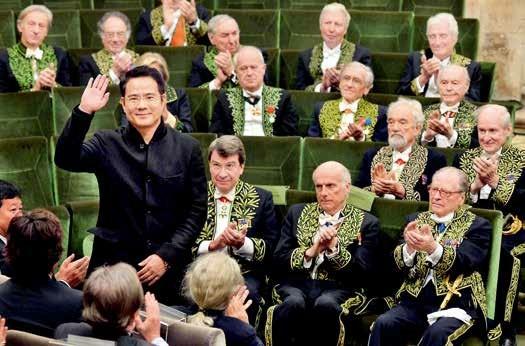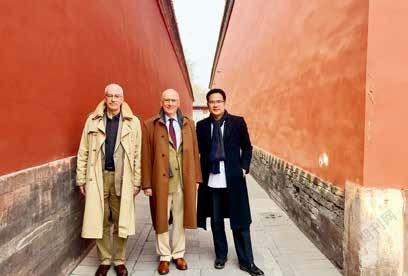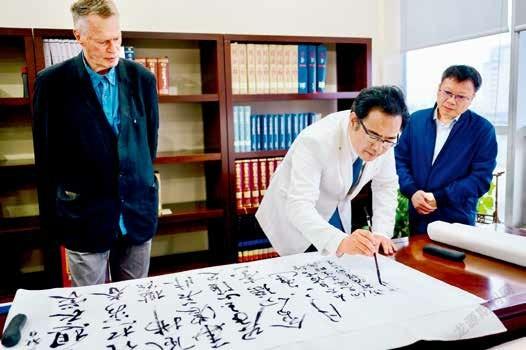Cultural Conveyor
2022-06-28byDongQiang
by Dong Qiang
One day in October 2009, I was at a railway station in Rennes, France, with a suitcase waiting for a train to Lyon via Paris.
In July 2008, the head of the Federation of Associations Franco-Chinoise, a non-governmental organization in Lyon, saw my presentation about Chinas Forbidden City in the cultural program “Des Racines et des Ailes” (“Roots and Wings”) on French national TV.
At the time, some disruptions during the Summer Olympics torch relay had kindled a boycott against China in France. Some French people even refused to go to Chinese restaurants. The federation wanted to seek someone who could tell true stories of China to French people by giving lectures in major cities across France. They wanted the French to hear about the real China from a Chinese person.
“Des Racines et des Ailes” is one of the most famous cultural heritage programs in France. To celebrate its 10th anniversary, the production team planned to shoot a special episode on the Forbidden City. So, they wanted to seek out a Chinese guest who could share stories of the Forbidden City in French on the show. As the showrunner was struggling to find anyone suitable, he found a French edition of the Chinese book Mémoires dune dame de cour dans la Cité Interdite(Memoirs of a Palace Maid), which I had translated. So, he tracked me down through various channels and invited me to be the main guest on the show.
In 1994, I translated the book for the French publishing house Editions Philippe Picquier, while still working on my Ph.D. and studying the works of French sinologist Victor Segalen and poet Henri Michaux. Both visited China, and Victor Segalen even wrote a fiction about the Forbidden City.
After completing the translation, I wrote a long preface to the book in which I shared stories that happened in the imperial palace in different dynasties of China, how the French discovered the Forbidden City, and my thoughts on how todays French people could further understand it.
That is precisely how cultural exchange happens. One step after another, I shuttled between the two countries. Every research or publishing achievement creates possibilities for new communication opportunities. Real cultural communication doesnt happen from a lecture itself. The speaker needs to have integrated his knowledge and understanding with the latest topics and trends of the countries and the times to engage in quality exchange between cultures as a real “ferry operator.”38A7110E-08E5-4A40-A371-471E19CF5E16

Rennes, Lyon, Montargis (where late Chinese leader Deng Xiaoping once worked and studied when he was young)... I made a lecture tour across France. In every city, I set a new topic including Chinas history, education, painting, poetry, or reform and opening-up policy. The venues were dramatically different and included a city hall, a middle school, a university, libraries, and cultural centers. With any audience, however, without exception, I spent an hour giving my lecture and saved another hour to answer questions.
That has always been a very important principle for me. Regardless of what I do with the lecture, I always leave enough time for questions. The essence of exchange is interaction and communication, not just someone standing at a podium dispensing knowledge and then going away when the lecture is over.
In fact, the question and answer section is often more interesting than the lecture. That is when the confusion and puzzles of readers or attendees can finally be heard and resolved. Anyone who chooses to spend his spare time listening to a foreigner talk about his own country and culture must have questions and expectations.
If someone says something prejudiced impulsively, it should still be understood, because some questions were likely gnawing at him for a long time, causing the need to speak it out. Carefully listening to the questions and offering the most reliable and earnest heart-to-heart answers is the surest path to opening hearts and leading the audience to listen to the narration and interpretation of a foreign culture.
Therefore, the most important experiences to share when engaging in cultural exchange are that we should firstly improve our own understanding to the other countries. When I translated Analects of Confucius, I was deeply impressed by the masters ideas about education. His understandings of his disciples were no less than of himself.
In cultural exchange, the audiences are not disciples, but adults with their own knowledge structure, psychological characteristics, and cultural literacy. Only fully respecting their rationality and knowledge reserves will enable them to accept and recognize the uniqueness and values of Chinese culture.
One day, the pandemic will fade, and the world will resume prosperous cultural exchange. I hope to drag a suitcase to many countries again to exchange ideas with people and find the commonalities of human nature hidden among differences.38A7110E-08E5-4A40-A371-471E19CF5E16
